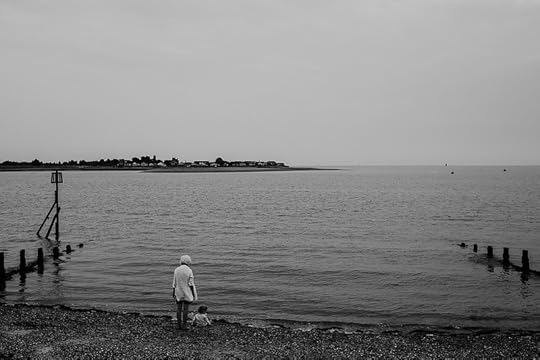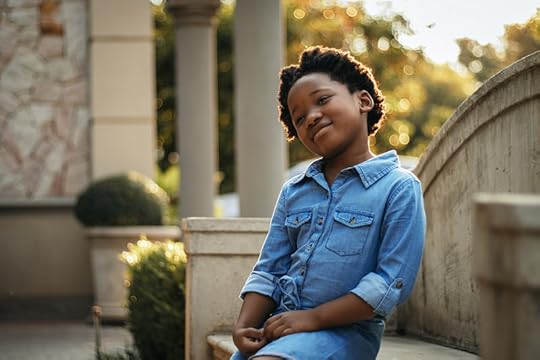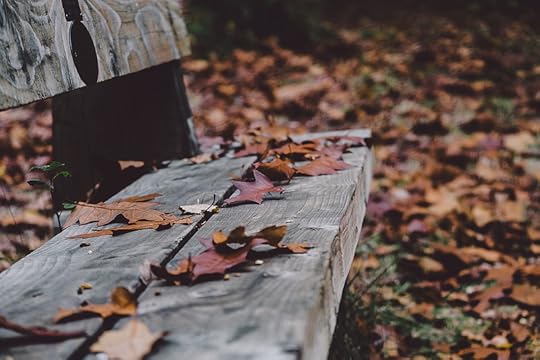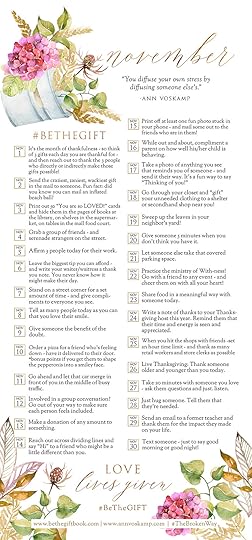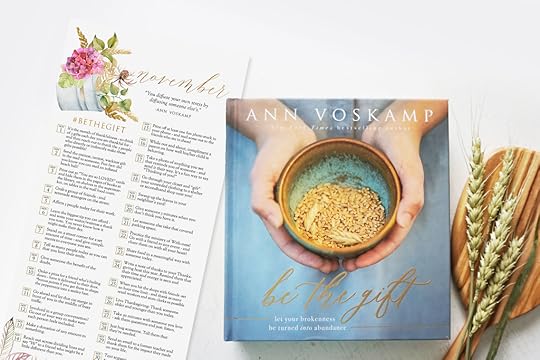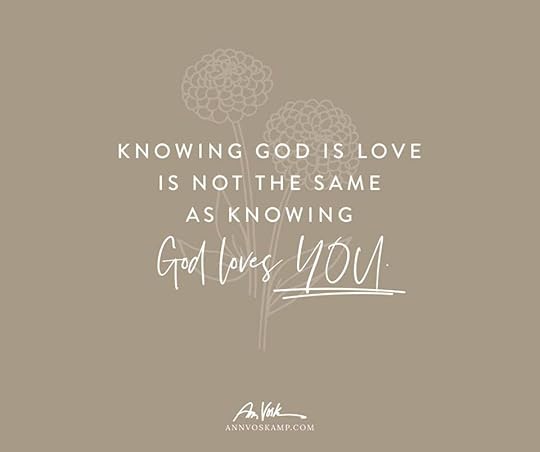Ann Voskamp's Blog, page 113
November 14, 2018
House Flipping + You + Our New Fair Trade Store = World Fixer Uppers
On the edge of the equator, on the edge of a slum — I sit with a woman at a loom.
This is the woman who would unexpectedly start to flip our farmhouse.
I’d never met her before.
All our Homes tell a story.
But she’s the actual woman who wove the welcome mat that’s been laying just inside the backdoor of our farm house this last year.
I reach out to shake her hand. All our Homes tell a story.
Claris and her woven welcome mat is part of the story of our home. I watch Claris’ eyes.
Every blanket, every mat, every spoon, every plate — in every one of our homes — began somewhere in the world, was made by someone in the world, and somehow changed a bit of the world’s story — for better or worse.
I step closer to watch how Claris weaves.






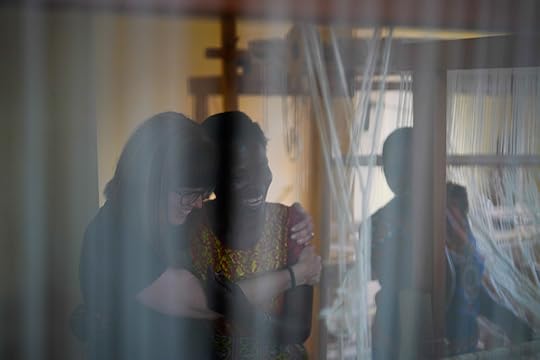
Claris shuttles the threads through her hands, moves the weave of things with her feet. I lean forward and ask Claris what runs through her mind when she runs the whirl of loom.
When you’re following the pattern of Christ, you’re always about how hands and feet really move together — just like His.
“Always I’m thinking,” she says, her hands not leaving the shuttle and the long mat she is weaving. “I will only have the right pattern, if my hands and feet keep moving together right. I just have to keep my hands and feet moving together just right.”
I watch Claris’s holy work, the way her hands and feet move, and something in me is deeply moved. I reach out to touch her shoulder.
When you’re following the pattern of Christ, you’re always about how hands and feet really move together — just like His.
In the middle of a Nairobi slum, in a singular shaft of light from the relief of an open door, I sit in the suffocating heat of a tin shack, with Claris who has invited me — into her home.
The only welcome mat Claris has is her warm smile.
But she invites me right to her table.






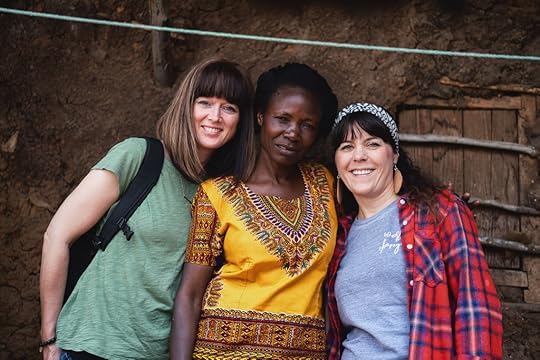
In a slum in Nairobi, I sit in the home of a woman who’s uniquely woven herself into part of my home, and I sit under her roof, at her table, and I start to name that in me which is deeply moved:
Let your home tell a story of grace.
Make homes into holy places
and make holy places into welcoming homes
And —
Make tables into altars —
and make altars into tables
because He who is our bread
Invites us all
to be a celebrating, banqueting people who:
Make space at tables
Break bread at tables
Recognize Him at tables
Feast till the very end of time at tables
And invite more to the Table.
Lay out the welcome mats. Set the tables. Make the tables long, so more know they belong. Tear down the gates and lay out more plates.
Let your home tell a story of grace.
Grace given, grace received, grace passed forward and given again.
Home — maybe the most powerful word we know. So it matters — eternally — how we make our homes.
Claris passes cups of tea around her table and she tells us: She is the aunt of Lillian and she’s now Lillian’s guardian. Because Lillian had been passed around from slum shack to slum shack, from man to man, raped and assaulted and disposed of, until she found herself pregnant and in the the safe refuge in Mercy House’s home. A safe home for young girls raped in the slums — a safe home for vulnerable girls to become mothers.
When Lillian now visits the slum with her giggling baby boy slung on her hip, men down the alleys call out her name, call out threats, call out a price. But Lillian keeps walking. Because now? Now Aunt Claris is a full-time weaving artisan with Mercy House and she can afford safer housing, a better home, she can put food on the table, and Lillian’s in school and being offered vocational training through Mercy House.
So now? Lillian can walk home.
Home — maybe the most powerful word we know. So it matters — eternally — how we make a home.
 Grace Crafted Home
Grace Crafted Home Grace Crafted Home
Grace Crafted Home

 Grace Crafted Home
Grace Crafted Home Grace Crafted Home
Grace Crafted Home

 Grace Crafted Home
Grace Crafted Home Grace Crafted Home
Grace Crafted Home Grace Crafted Home
Grace Crafted Home Grace Crafted Home
Grace Crafted Home

I tell Aunt Claris that my Farmer husband says her mat at our home’s back door is the best one we’ve ever had, and he asked where I got that mat, and I think how all our homes long to tell the very best story.
Our homes are always either telling one of two stories: fair trade stories or unfair stories.
The welcome mats under our feet, the steaming mugs in our hands, the full bowls on our tables, could tell a grace story — a story of fair trade, a story of life change, a story of saving, Gospel grace. Stories that empower a sister, change the lives of a whole family, free another soul from darkness, offer the sheltering roof of amazing grace.
I ask Aunt Claris what story she wants the people who stand on her mats to know?
“I want you to be happy and your life to be changed.” She takes my hand in hers.
“Because — because of that rug, all the rugs — I am happy and our lives are changed.”
She’s weeping happy. And I fling my arms around her. What if all our lives kinda flipped, our paradigms flipped, our perspectives flipped, our priorities flipped, our homes flipped — because the stories in our homes flipped — from unfair stories — to fair trade stories?
Claris and Lillian’s whole lives have flipped…. Because of the dignity of work, because of becoming a creator, an artisan, because of fair trade.
And I look her in the eye:
What if all our lives kinda flipped, our paradigms flipped, our perspectives flipped, our priorities flipped, our homes flipped — because the stories in our homes flipped — from unfair stories — to fair trade stories?
Flipped to a story that you would want to know, a story you’d want to tell — not a story of oppression or exploitation, but a story that deeply respects every artisan with the dignity of a quality work environment, that fully honors their craft with empowering, fair compensation.
That gives grace back to the world the grace we’ve so lavishly been given.
If our homes aren’t telling a fair trade story — are our homes telling an unfair story?
And there’s no better house flipping — than flipping your house’s story — into a fair trade story.
Make the most eternal investment by House Flipping — by flipping house scripts — from a house full of unfair stories to a home full of fair trade stories.

 Grace Crafted Home
Grace Crafted Home Grace Crafted Home
Grace Crafted Home
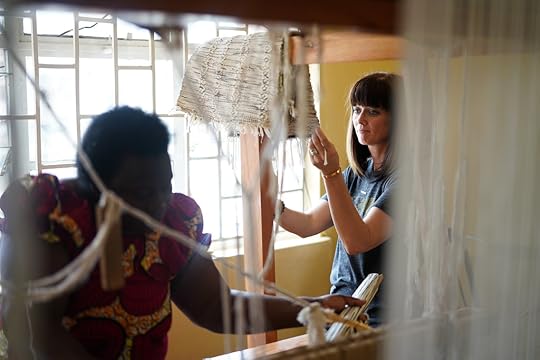
 Grace Crafted Home
Grace Crafted Home Grace Crafted Home
Grace Crafted Home

 Grace Crafted Home
Grace Crafted Home Grace Crafted Home
Grace Crafted Home

 Grace Crafted Home
Grace Crafted Home Grace Crafted Home
Grace Crafted Home

 Grace Crafted Home
Grace Crafted Home

 Grace Crafted Home
Grace Crafted Home

 Grace Crafted Home
Grace Crafted Home

When I walk in the back door of the farmhouse — I step onto that welcome mat — and into the story of Claris, the story of Lillian, into a story that’s changing the world. I smile.
If our homes aren’t telling a fair trade story — are our homes telling an unfair story?
Be happy! All our lives are changed! Watch how all our hands and feet can move — reaching out to each other — to invite each other into more and more Grace.
When we sit down to eat — we share a kind of communion with the world, with the hands that grew our food, with the hands that made our plates. Tables become altars and altars become tables.
Make tables into altars — and make altars into tables, because He who is our bread invites us all to be a celebrating people who make space at tables, break bread at tables, recognizes Him at tables — and invite more to the table.
A Grace Crafted Home tells a grace story — that all, everywhere, are invited to His table. Into His life-changing home.
Wherever there is a place of Grace —
we all find more of Home.
A place where we show grace. Give grace. Pass on Grace.
 Grace Crafted Home
Grace Crafted Home

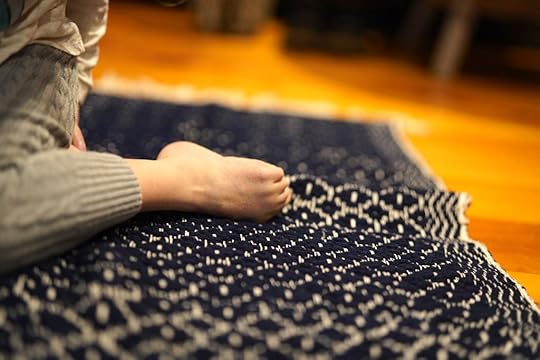 Grace Crafted Home
Grace Crafted Home Grace Crafted Home
Grace Crafted Home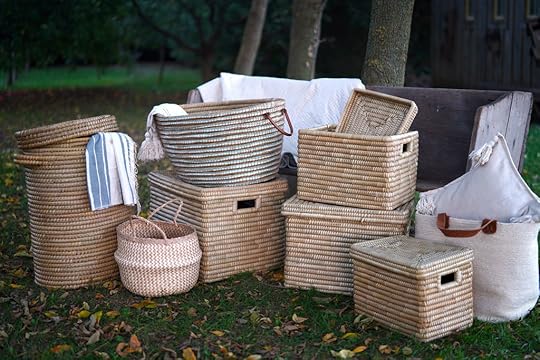 Grace Crafted Home
Grace Crafted Home Grace Crafted Home
Grace Crafted Home Grace Crafted Home
Grace Crafted Home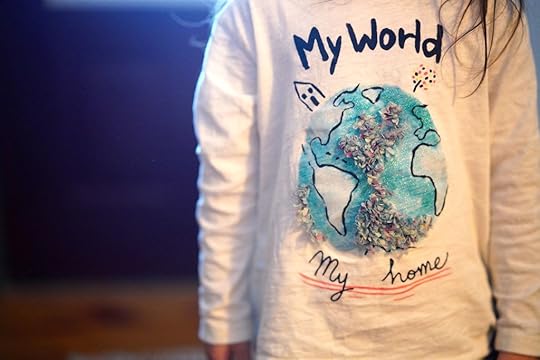 Grace Crafted Home
Grace Crafted Home Grace Crafted Home
Grace Crafted Home Grace Crafted Home
Grace Crafted Home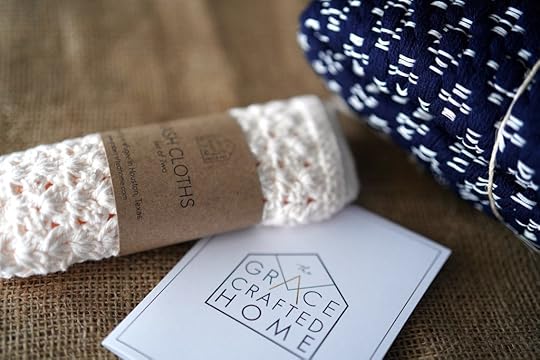 Grace Crafted Home
Grace Crafted Home Grace Crafted Home
Grace Crafted Home

 Grace Crafted Home
Grace Crafted Home Grace Crafted Home
Grace Crafted HomeWherever there is a place of Grace — we all find more of Home.
And I laugh when I flip over that mat in the mudroom — laugh and tell the Farmer that when the chips are down, let’s flip houses that do nothing less than gain more grace for more of the world.
The man grins a mile wide and winks and it’s my that heart flips — and our lives and stories and unfair stories and all our homes can all flip.
On the edge of a room, on the corner of a mat, I stand on a soft weave in bare feet, because a fair trade home like this could become a bit of holy ground.
Because — nothing ever flips the script like grace.
Welcome Home.
To (our New Fair Trade Store!!) Grace Crafted Home —
the kind of home you’ve always longed for.
Your home can tell a story — that’s changing the story of the world.
Every piece in our Grace Crafted Home collection is:
* fair trade
* dignifies, honors and empowers the artisan
* has a good story to tell — a story you’d not only want to know, but a story you’d want to tell — so you are part of changing story of the world for better
* 100% of all funds not only empowers artisans around the world, but partners with Mercy House Global to support several homes for young women and their babies in crisis pregnancies in the slums of Nairobi, Kenya
* 100% — every penny — of your Grace Crafted Home is giving grace back to those in need — and writing a grace story not only in your home, but around the world.
Choose to craft a home that is not only beautiful —
but crafts a meaningful, powerful and beautiful story in the world.
Choose a Grace Crafted Home.
The post House Flipping + You + Our New Fair Trade Store = World Fixer Uppers appeared first on Ann Voskamp.

November 13, 2018
If You’ve Been Asking for God to Give You a Message: Here it is
Such a traveler has moved on to the far better beyond. I confess, since I heard about Eugene, I’ve often fought tears. I love the man. I met him only once, sat in the Colorado mountains, a few of us in a log cabin, with Eugene and his bride, Jan, for an hour or two. I will never forget his mirth, the way he laughed and his eyes danced. Eugene and his gentle joy. I thank God for Eugene’s faith battle that helped countless of us win more of ours. We were all graced with one of the great saints of the faith. For 18 months, John Blasé and I poured over every word, of every line, of every page of The Message and countless times my heart ached with the question: When will one like this pastoral giant ever pass by our way again? Maybe today even the trees of the field applaud, and we nod, bravely smiling through tears — we have not lost one of the greats… with Eugene, we all only gained. It’s a grace to welcome my friend, John Blase, to our farm’s front porch, as we share the journey of our “work” with Eugene over a year ago.
Alexander Pope said it: “Fools rush in where angels fear to tread.”
Then Elvis came along and sang it: “Wise men say only fools rush in.” (You’re probably singing that in your head right now.)
Reading His Word is not about getting Him to love you… but about getting yourself to the place where you can hear Him tell you He loves you.
When NavPress approached the two of us about working on some revisions for The Message Devotional Bible in celebration of its twenty-fifth anniversary, we hesitated for about a minute — then said yes.
Foolish? Maybe.
Why take such a beautifully influential creation and tinker around with it, with at least a fair chance of messing it up?
That’s a good question, and one we asked ourselves. But we knew it was an opportunity to play the smallest part in the ongoing lyrical approach to God’s Word inaugurated by Eugene Peterson.
In other words — it was a chance to be a part of the music.
The Message Devotional Bible has played a significant role in both our lives, from being the text read round the farming family’s dinner table in the evenings — to being one of the reasons we’ve still got our “eye on the goal, where God is beckoning us onward – to Jesus” (Philippians 3:14).
So, fools or not — we rushed in.

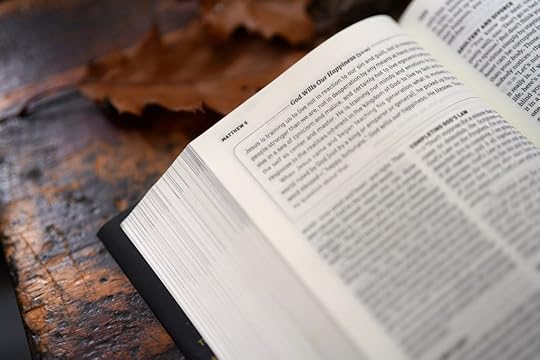
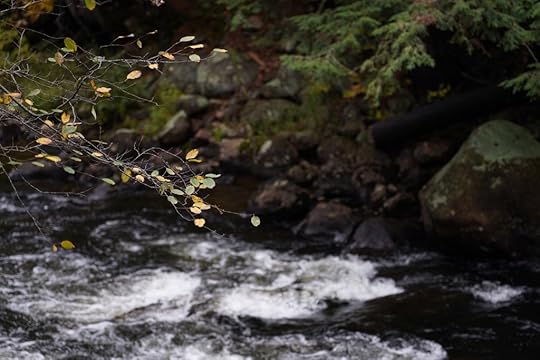

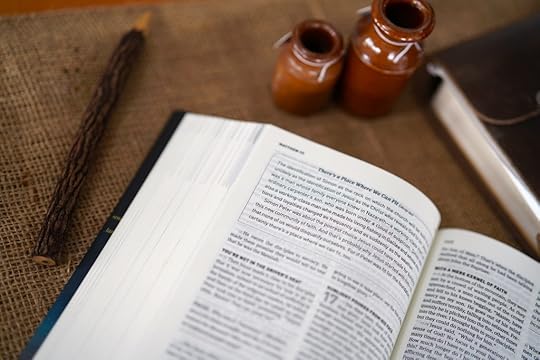
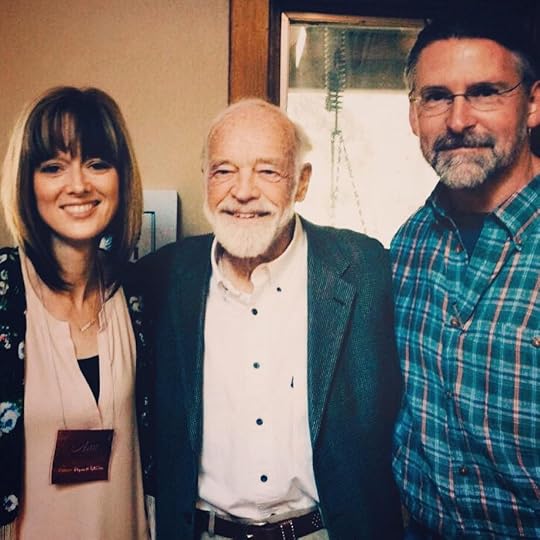



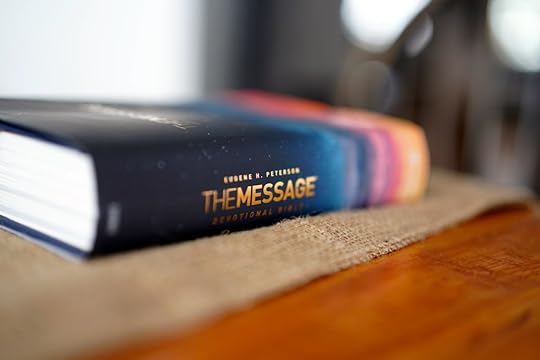

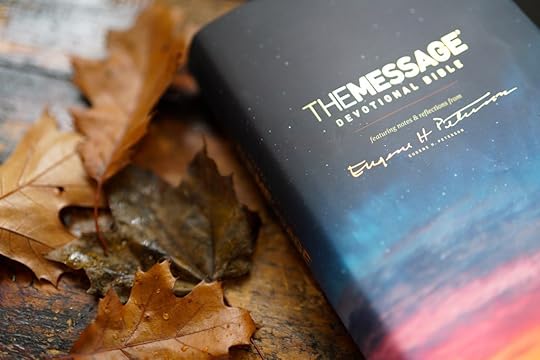

We were instructed to approach any edits with a light hand. This was not an effort to take an engine apart and then put it back together. Besides, we’re not mechanics.
Without the lens of the Word, the world warps.
Steep in it, meditate on it, return to it, carry a verse of it, don’t begin the day without it.
No, it was more a thorough reading to determine if there were words or phrases which, over time, had become un-contemporary. Such words and phrases were tagged, compared to other translations, then wrestled with to see if we could suggest not something better, but something similarly different.
If you don’t think this was a humbling labor, then you might just want to pinch yourself and wake up.
Trust us — it was quite the daunting assignment. One angels might have even refused. But we’re not angels either, so we put our hands to the plow.
We’d love to say there was some divinely inspired plan we used to decide who would take what books to work through. The only problem is there wasn’t. We started out working on the same books in an effort to see if we were complementary as opposed to contradictory. We were, thankfully, the former, both seeing many of the same things and feeling a unison about suggesting possible edits.
Don’t try to face the day, until you’ve sought the face of God.
After a few books together, we felt confident to adopt an approach of “you take Galatians, I’ll take Ephesians.” And that worked. There were also those times when one of us would indicate a desire to work on a specific book. And that worked too.
At the conclusion of each “batch” of Scripture, for example Paul’s letters or the Minor Prophets, we would look over each other’s work and comment or challenge as need be. All of our work was done from a distance, one of us on Canadian farmland — and another along Colorado’s Front Range.
To say working on this project was one of the highlights of our lives would be an understatement.
Our suggested edits were submitted to the NavPress editorial team, then forwarded to theological scholars for their review — then on to Eugene for final approval.
There were about as many times we would conclude, “Yes, let’s suggest an edit” as there were times we would concede, “You know, Eugene got it right. He really did. Let’s leave it as is.”
His Word made the heavens — and His Word remakes our hearts.
Those moments of concession were wonderful to realize, for they evidenced a man truly in a rhythm, highly attuned to just the best word or phrase to communicate Scripture’s intent to today’s ears.
Time after time, page after page, verse after verse, it was clear that Eugene Peterson is a man who loves God’s Word and intensely desires people to read it.
And that was one of the additional joys of this project – a thorough reading of God’s Word, from beginning to end. The all-too-common practice of cherry-picking not just verses, but even words, leaves the body of Christ poorer and our witness sorely at risk. This is God’s message to us — all of it.
The steady beat of His Word is the only thing that gives a strong rhythm to our days.
Reading His Word is not about getting Him to love you… but about getting yourself to the place where you can hear Him tell you He loves you.
Start in that place every day — the place where you open His Word & hear Him tell you He loves you. Don’t try to face the day, until you’ve sought the face of God.
“The skies were made by God’s command;
He breathed the word and the stars popped out.
He scooped Sea into his jug,
put Ocean in his keg.
Earth-creatures, bow before God, world-dwellers—down on your knees!
Here’s why: He spoke and there it was,
in place the moment he said so.” Ps. 33:6 MSG
Open His Word and feel His breath close on you… God’s doing it right now: His Word made the heavens — and His Word remakes you.
In the midst of social media streams, all that quenches is Living Water. In the midst of all our feeds, all that satisfies is feeding on Living Bread.
If anyone is thirsty, let him come not to the habit of going to the tap of distraction,
to the fridge of immediate gratification,
or to the water-well of modern escapism,
where you keep swallowing it down, but never feel well,
but come to the Word
— the pitcher & beauty of Jesus —
and drink deep & long, to the soul’s deep quenching content.
For as the well of The One Good Book says, “Streams of life-giving water will fill & brim & overflow from anyone who comes to Him when overwhelmed.” [paraphrasing John 7:37-38]
In the midst of social media streams, all that quenches is Living Water.
In the midst of all our feeds, all that satisfies is feeding on Living Bread.
As Eugene rendered Matthew 11: 28-30 — (We did not suggest any changes in these particular verses. We pray we’re not complete fools.)
“Are you tired? Worn out? Burned out on religion? Come to Me. Get away with me and you’ll recover your life. I’ll show you how to take a real rest.
Walk with Me and work with Me—watch how I do it.
Learn the unforced rhythms of grace.
I won’t lay anything heavy or ill-fitting on you. Keep company with Me —
and you’ll learn to live freely and lightly.”
Get away with Him: Without the lens of the Word, the world warps. Steep in it, meditate on it, return to it, carry a verse of it, don’t begin the day without it.
And in this daily opening of His message to us — there is this learning of the ‘unforced rhymes of grace,’ there is this keeping company with Christ — and finding that we are kept in Christ.
And we get to, especially now, live in the rhythms of grace, always grace — all the music of this living freely and lightly.
Ann Voskamp and John Blase were commissioned in 2016 by NavPress to undertake an “aesthetic revision” of Eugene Peterson’s The Message in advance of its twenty-fifth year of publication.
Filled with notes and reflections from Eugene H. Peterson, The Message Devotional Bible invites you on a journey. You will wander, sometimes plod, and even soar through the Bible alongside a fellow traveler, discovering again and again the surprise and wonder of God’s love and devotion to you.
From the pastor who translated the entire Bible, The Message Devotional Bible sets you on the right path—devoted not just to the Bible but to God, who, in Jesus, became flesh and blood and moved into the neighborhood. It includes over 600 scriptural insights, 52 contemplative readings, introductions to the books and genres of the Bible, more than 400 reflection questions, and 9 neighborhood-themed articles.
[ Our humble thanks to NavPress for their partnership in today’s devotion ]
The post If You’ve Been Asking for God to Give You a Message: Here it is appeared first on Ann Voskamp.

November 9, 2018
Mass Shootings: What if We Did This, Before The Music Dies…
The notes may have kept bravely playing after Vegas, but this week in Thousand Oaks, it felt like the music died.
They were all line dancing, linked and toe tapping, when bullets ripped through the refrain and young girls’ unsuspecting backs.
In the midst of a world of outrage — what the world needs is more outreach.
Telemachus Orfanos survived last year’s Las Vegas’ spray of gunfire. He drove back to home his mother — only to be gunned down in his hometown bar and grill, senseless violence strangling out the song mid-chorus. Tel did not make it home to his waiting mother last night. A former U. S. Navy Marine, not yet 28 years old, he’d signed up to defend his neighbour, his nation — and he was cut down in his own neighbourhood.
The world spins a bit stunned today, listening to the fading notes, wondering how our children, our neighbors, “they all got up to dance — oh, but they never got the chance.”
When the bullets started — they said they had to dive for cover.
Love that loves its neighbor does not seek its own, and love bears all things, believes all things, hopes all things, endures all things — and love never fails. Love bears all things — that word “bears” — it’s the word stego in the Greek, and it literally means love is a thatch roof. Love is a roof that takes a rain of bullets.
Love makes itself into the cover and absorbs the fury and the fire to protect the vulnerable.
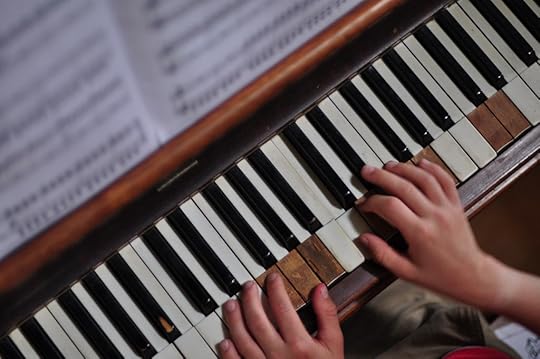
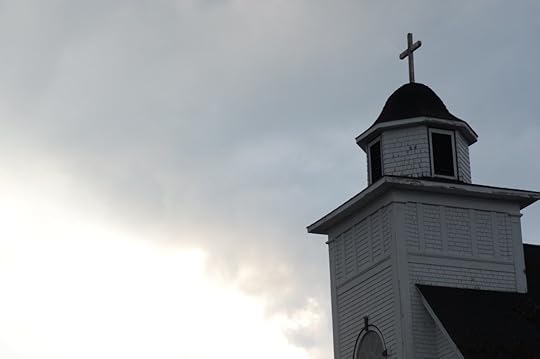
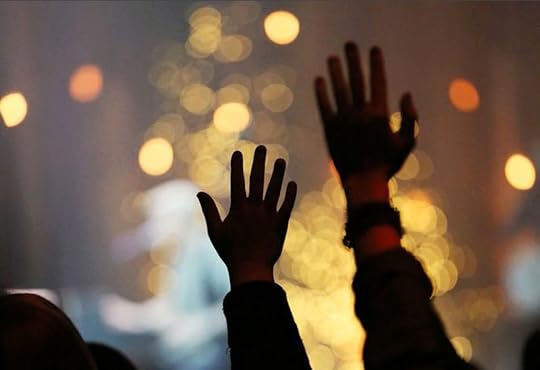
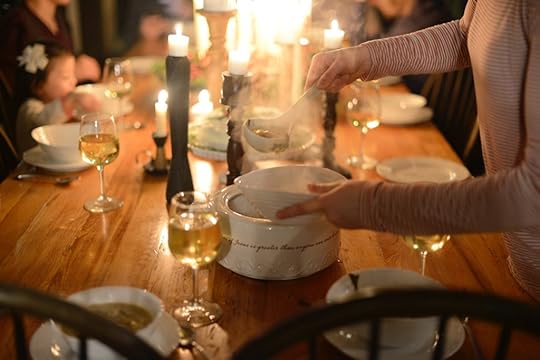
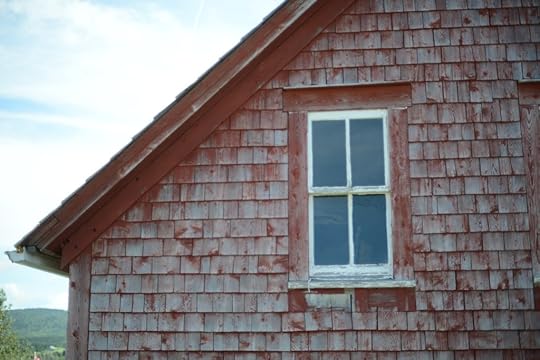
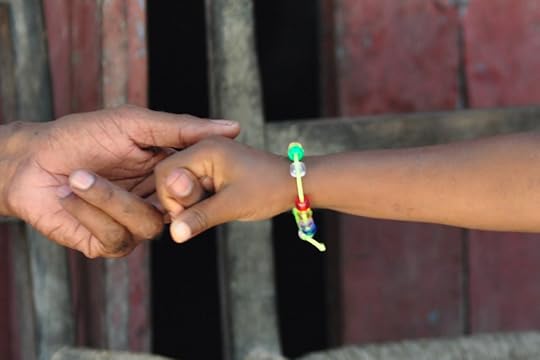
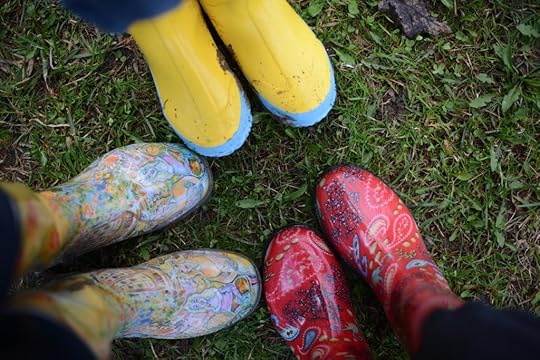
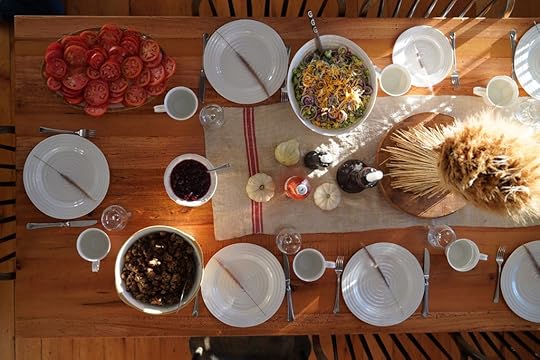
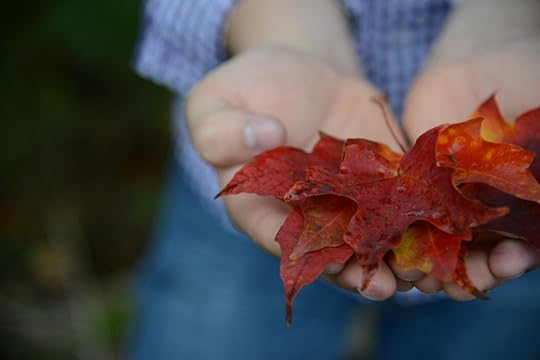
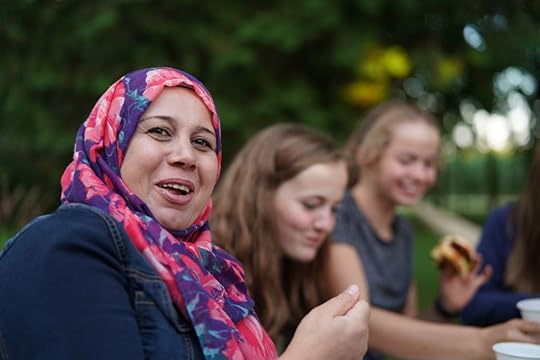
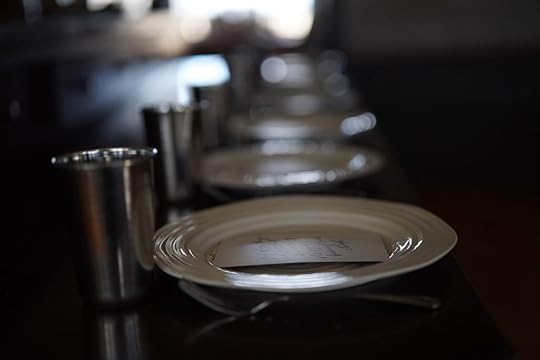
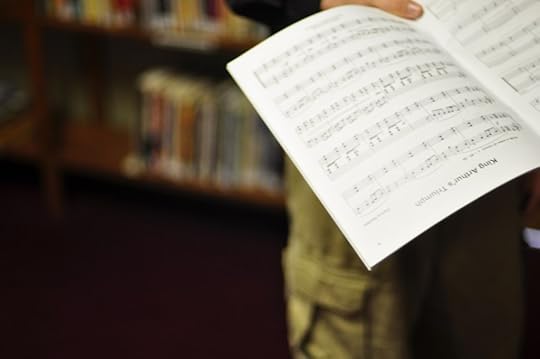

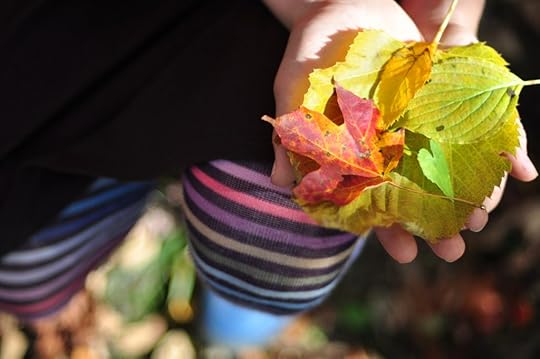
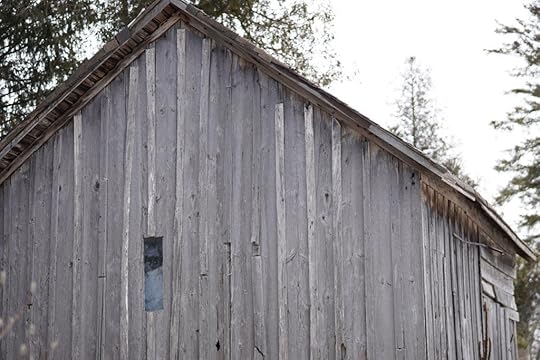
Real love makes your actual life into a shelter to take a rain of searing pain — to be protection for others.
When Sgt. Ron Helus heard the shooting, he told his wife on the other end of the phone how much he loved her, but he had to go — and he ran toward the crisis, ran into the gunfire.
“He went in to save lives, to save other people,” is what was said when officials announced that Helus’ life had been cut short by the rage of bullets. “First person there — and confronted [the shooter] to try to save others hiding inside.”
Helus’s is a modern day Good Samaritan to his neighbors:
Helus did. We could. When Helus’ body was transported from the hospital to the funeral home, hundred of mourners lined the streets in an hour-long processsion and a whole nation felt the gravity of it: Heroes don’t want to land on covers — they make their whole life a cover for the vulnerable.
Sean Adler, 48, a bouncer at the Borderline Bar & Grill, was remembered this week by a childhood friend, who choked back the emotion as he spoke: “Sean was my protector. He stood up for me, and he showed me the kind of kindnesses I didn’t get from other people. I needed that so badly at that time.”
It’s always the protectors of the vulnerable who are the vendors of hope. And that is exactly what we need that so badly at this time.
Where are the neighbors who will show up, stand up, and rise up for the vulnerable?
Where are the neighbors showing a rare kind of kindness, who are intentionally about outreach in a time of outrage?
Where are the neighbors who will literally and intentionally do one thing this week to be a kind of roof to the vulnerable?
Because unless we commit to proactively using our lives to somehow protect the vulnerable this week, advocate for someone else’s interests, stand up for someone else’s interests — our horror is hollow, our grief is cheap, and protectors like Helus and Adler died in vain.
Our interests have to be invested in the interests of our vulnerable neighbor and not be solely individualistic — or our society becomes dangerously narcissistic.
“… Hell [is] a state where everyone is perpetually concerned about his own dignity and advancement,” writes theologian C.S. Lewis.
Days like these, with the music fading, leave us asking: Is it a kind of hell on earth wherever we each care only about our own interests on earth?
And does a bit of heaven come down wherever just one person stands up for the interests of vulnerable and marginalized neighbors?
And it’s our neighbourhoods that direly need more heroes like Adler and Helus, who lived it:
Love risks itself into a roof — not to protects self-interests, but to stand up for the interests of the vulnerable.
Love makes its tables long — so more people know that they belong.
Love tears down its gates — and lays out more plates.
Love uses its privilege — to shield others from pain.
Love reaches out to the neighbors most different — to be part of writing a different, better story.
This is not the time to think these are passing words — this is a pressing imperative. This is the time for the heroes to rise up and literally do one thing in the neighborhood that we wish we could do in the Thousand Oaks neighborhood. This is a call to action — a call to our own honoring Sgt. Ron Helus who ran toward the crisis — and make no mistake, this is a time of crisis.
We may be neighbors who do not agree about elections or politicians or immigration or gun control but love is a roof that invites in those who think differently to our table, to break bread, to break down stereotypes, to listen to different perspectives, to pass around the bowls, and pass down kindness and respect and grace.
And it begins right in our neighborhoods, right under our own roofs:
When we sit at each other’s tables, we listen and begin to understand each other — and find common ground to stand for each other.
Sean Adler and Sgt. Ron Helus gave us all the sheet music of hope for change for our neighborhoods, for our times:
Only when you’re making your interests about the interests of the other, are you rightly investing your life.
Because Helus knew it, right to his last brave breath: It’s our fears that needs to be evicted, it’s the mentality of us against them that needs to move out, it’s the idea that it’s just all of us out for our own interests that desperately needs to be kicked out of the neighborhood.
It could be the refrain under all of our roofs: Live your life so that your love of the different and the vulnerable and the marginalized neighbor getting the best chance to live their one beautiful life beats the very loudest in your heart.
And then maybe the music could rise again, raise a bit of the roof — and we could serve pie to the neighbors and dance all again, out in our welcoming streets.
The post Mass Shootings: What if We Did This, Before The Music Dies… appeared first on Ann Voskamp.

November 7, 2018
How discovering and using your voice can change just about everything
I think that when we see others achieve things with such great heights, we assume that every other area of their life is soaring just as high. It seems that for something to be so high-achieving, then everything else around them should be, too. This may especially be true of a singer, whose craft, their voice, is expected to be as polished and perfect and strong on the inside as it is on the outside. You may not expect that a Grammy Award winner with millions of albums sold struggled with her voice. Sandi Patty did. Over her life she silenced her voice because of situations and choice. And as she dug her way out of shame, she realized that the biggest tool she had to truly receive the grace of God was through her voice. Not the same one that won so many awards. But her true, inner, personal, God-designed voice. It’s a grace to welcome Sandi Patty to the farm’s front porch today…
The beautiful thing about getting older and a bit more healthy is that you grow in new ways—new behaviors, new boundaries, new words, new friendships.
The hard thing about getting healthy is that you grow in all those same ways. Learning something new when you have long-established patterns can be a significant challenge.
Put another way, growth is just downright hard. Worth it, but hard.
I have a friend who is a recovering alcoholic, now five years sober.
I recently noticed that he was doing many new things—traveling a good bit and taking some cooking and art classes. I finally asked him why he was so busy and how he could still be working full time yet have so much time to play.
He said, “Sandi, you have to understand that I spent so much time drunk, I had to figure out what to do with all this extra time. I’ve had to learn how to live differently. Now that I’m sober, I have so much time that I didn’t used to have, so my sponsors from Alcoholics Anonymous encouraged me to learn new things.”
I believe that those of us who are growing from voicelessness into the full expression of who we are created to be in Christ Jesus would do well to follow my friend’s example.
Let’s invest ourselves in learning new skills to live differently so that our voices become richer and fuller expressions of who we are in Jesus. This means learning new skills. We must set ourselves up for success.
In the past few years, my mom shared that, in her family of origin, she knew that she was loved, but she never really heard the words. Her parents simply were not verbally expressive of their love with one another or with her.
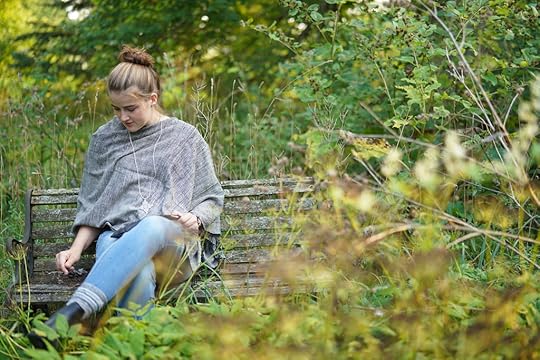 The Grace Case
The Grace Case


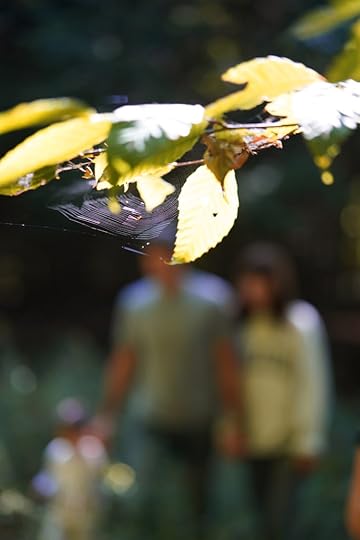
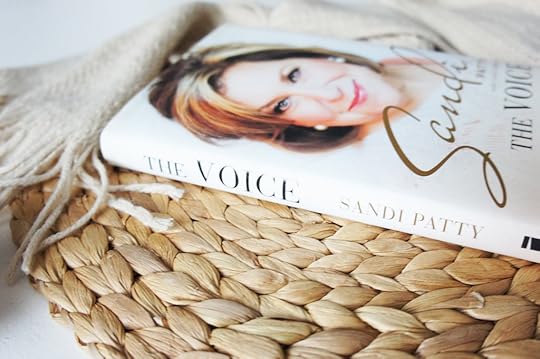

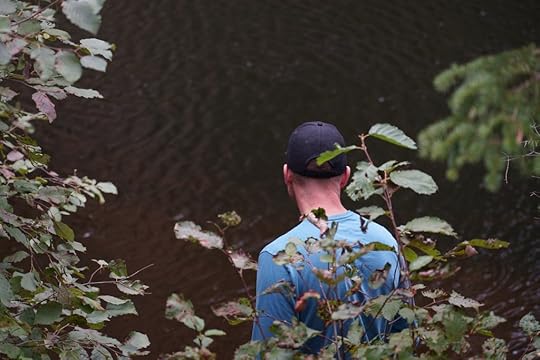
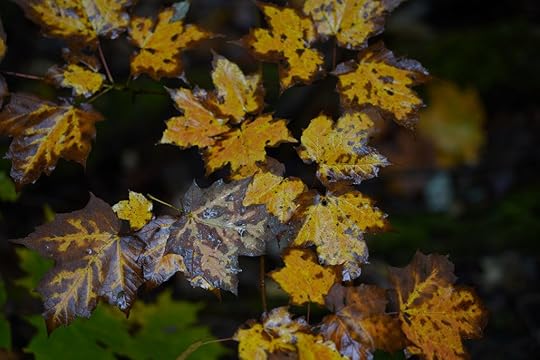

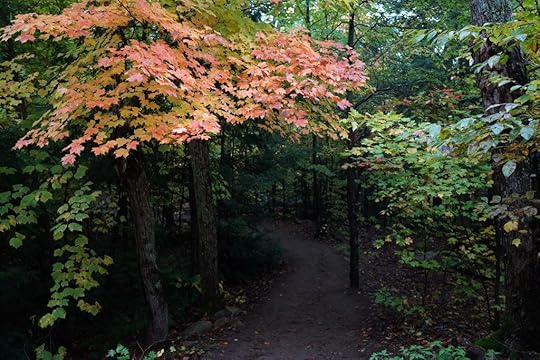
Consequently, before her marriage to my dad, she never learned how to say the words “I love you.”
When she and my dad got married, my dad was very free to say “I love you.” Slowly, my mom learned how to say “I love you” back to him. But when my two younger brothers and I were born, Mom worried that she wouldn’t know how to naturally say “I love you” to us.
So Mom, determined to become comfortable and natural in expressing her love verbally, would wait at night until we three were sound asleep, and stand over us and practice these important words.
“I love you, Sandi.”
“I love you, Mike.”
“I love you, Craig.”
She practiced saying the words so that when the time came, she would feel comfortable saying them to us.
Isn’t that a beautiful picture of a young mother eager to grow into using her voice to be the kind of mother she wanted to be?
She started adding today several years ago when my youngest brother, Craig, was in a serious car crash. He sustained a head injury and was in a coma for many weeks. And so, not knowing how much longer we would have him on this earth, and not knowing whether we would have him tomorrow,she added the word today.
“Craig, I love you today!” And so now that has become a family story and a constant saying for all of us. We love you today!
I was reading Philippians 4:4–9 recently, and it sparked an illustration of how we can grow and practice our spiritual voices. Here is the rich instruction that Paul wrote to the believers in Philippi:
I am rejoicing that God is all powerful and can break through my strongholds.
Rejoice in the Lord always. I will say it again: Rejoice! Let your gentleness be evident to all. The Lord is near. Do not be anxious about anything, but in every situation, by prayer and petition, with thanksgiving, present your requests to God. And the peace of God, which transcends all understanding, will guard your hearts and your minds in Christ Jesus.
Finally, brothers and sisters, whatever is true, whatever is noble, whatever is right, whatever is pure, whatever is lovely, whatever is admirable—if anything is excellent or praiseworthy—think about such things. Whatever you have learned or received or heard from me, or seen in me—put it into practice. And the God of peace will be with you.
What if you and I practiced using our voices in these ways? Imagine how beautiful and strong our voices could become.
I’m offering thanksgiving to God that He hears my voice and knows my struggle and looks on me with compassion.
As the mom of a large blended family, I’d love to influence my family (and friends) by having my voice be one of rejoicing, praying for requests with thanksgiving, abiding in peace, and reflecting on such a wondrous list of qualities.
You see? I’m following in my mother’s footsteps of practicing what I want to come naturally to me.
As a work in progress, I am purposing to put into practice what I’ve learned from Philippians.
I am rejoicing that God is all powerful and can break through my strongholds.
I am making my request known to God: Lord, break through this area in my life where the enemy has such a hold on me. Lord, be in that situation in our family right now God.
And I’m offering thanksgiving to God that He hears my voice and knows my struggle and looks on me with compassion.
I am also praying for His peace in these areas, and I am choosing to think on what God has shown me to be true, noble, right, pure, lovely, admirable, excellent, and praiseworthy when it comes to food.
I am learning to trust more and more that God wants what is best for me and to be willing to practice, practice, practice, just like my mom did —
so that I may more and more become the person God created me to be.
Sandi Patty
is the most awarded female vocalist in contemporary Christian music history, with forty Dove Awards and five Grammy Awards. She was inducted into the Gospel Music Hall of Fame in 2004, releasing over thirty albums with over 12 million albums sold. Sandi was introduced to the world with her rendition of “The Star-Spangled Banner” during the rededication of the Statue of Liberty in 1986. Virtually overnight she became one of the country’s best-loved performers. Sandi and her husband, Don, have been married for over 20 years and are a proud blended family, with eight children and three grandchildren.
Christian music icon and forty-time Dove award winner, Sandi Patty has long astounded listeners with her powerful voice. And yet, off the stage, Sandi struggled to have a voice at all.
Through deeply intimate stories of her life and the empowering spiritual truths she’s learned, in her newly released book, The Voice, Sandi offers readers wisdom to navigate the journey from voicelessness to discovering the voice God has given you. With a poignant history of sexual abuse, infidelity, divorce, and crises of self-image, Sandi lived much of her life feeling unworthy of love or value. And like so many of us, she coped by living through the voices of others, allowing other people to prescribe her identity. As she performed around the world, Sandi met others just like her, who hid wounds behind quiet smiles and struggled to live with fractured identities.
Sandi’s warm and invitational writing will draw you to the voice of God who sings over your life saying you are seen, you are loved, and your voice is worth hearing.
[ Our humble thanks to Zondervan for their partnership in today’s devotion ]
The post How discovering and using your voice can change just about everything appeared first on Ann Voskamp.

November 6, 2018
When We All Need A Song of Hope
I can hardly mention this woman’s name without choking up. Simply, Christa Wells is a heart sister. Over the last decade, God has written the most exquisite music through her surrendered life — and her co-laboring with God has changed countless of our stories with her songs. Her songs are holy. Her heart is His. Her refrain is hope. I couldn’t love her more and her music has revived me time and again — more on that soon. It’s a hushing, humbling grace to invite one of my most favorite people of all time to the farm’s front porch.
“I’d been paying attention for years.
I’d paid attention when my friend, Vaneetha, who had survived the loss of her baby boy, told me what she’d seen of God in the blackness of loss. How joy did return…eventually.
I’d listened as Patty talked about her John, whose brief battle with cancer left her alone in a lake of grief with their three young daughters.
All around me were people who’d had more than their share of trouble, and I had absorbed their stories and written a few songs that attempted to frame their experience of grief and God and hope and healing.
We are made more Real and Alive precisely because of the birthing and burying, mistakes and amends, staying and loving.
I’d become acquainted with the language of loss and redemption, but I hadn’t really been asked to practice it.
My marriage to my college sweetheart was a treasure I took for granted in the best kind of way until it was suddenly and excruciatingly gone after more than two decades of togetherness. I felt I might curl up and die. Or at least get in bed and never get up again.
There was the Thursday I lay in the bathtub and let the water grow cold while I stared dead-eyed at the ceiling and thought of all the anticipated moments that had evaporated from my future, just like that.
Months before that cold-water day, I sat on our old couch reading our friend’s Ann’s book, The Broken Way. and in it the tender conversation she’d had with her broken-hearted mama.
Ann had recalled to her the truth carried in the story of The Velveteen Rabbit: that we are made more Real and Alive precisely because of the birthing and burying, mistakes and amends, staying and loving.
We are not failures, not un-beautiful, not unworthy, after all.
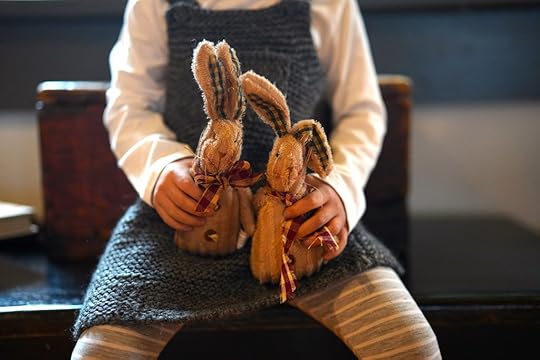
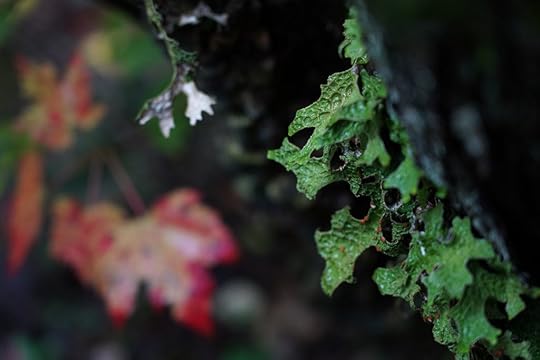
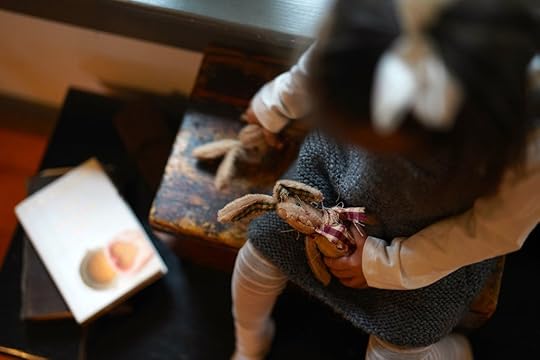

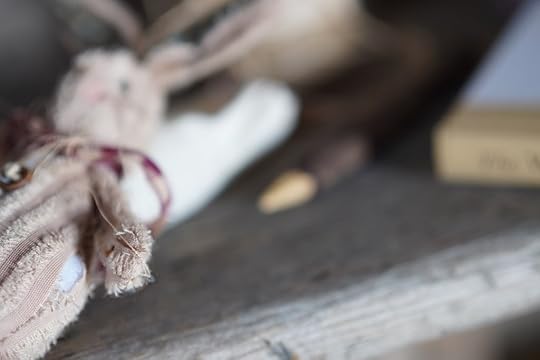
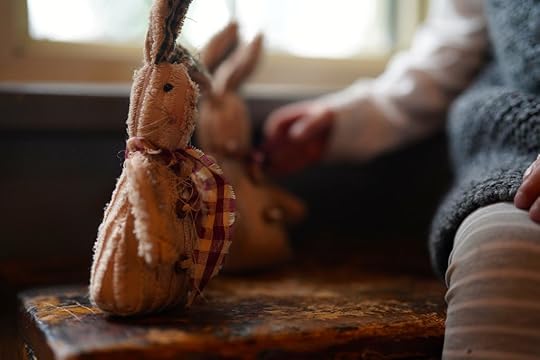

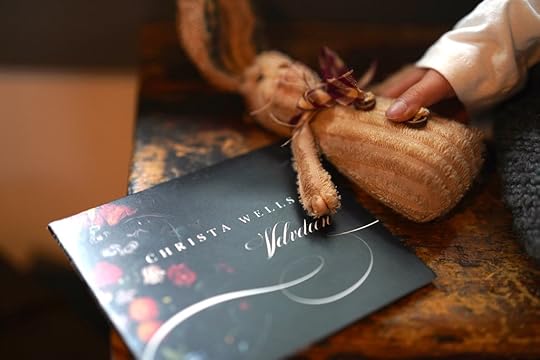

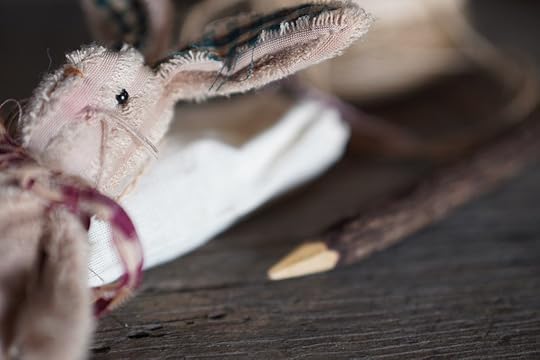
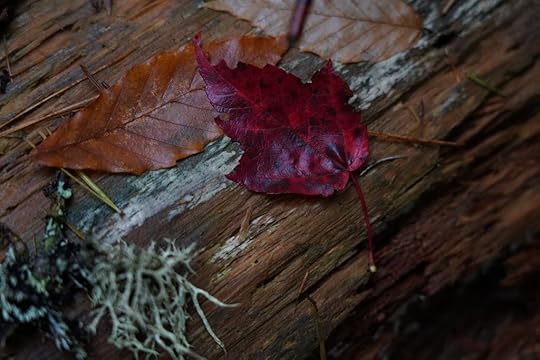
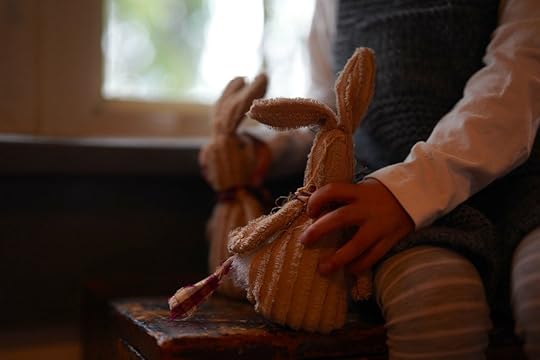
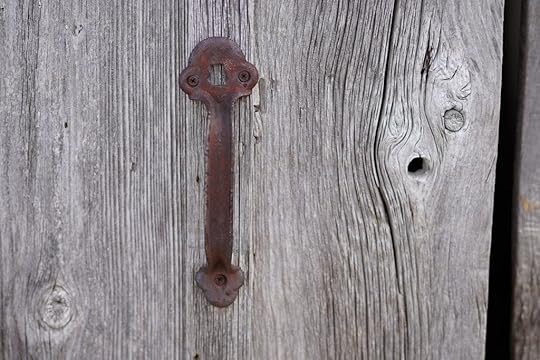
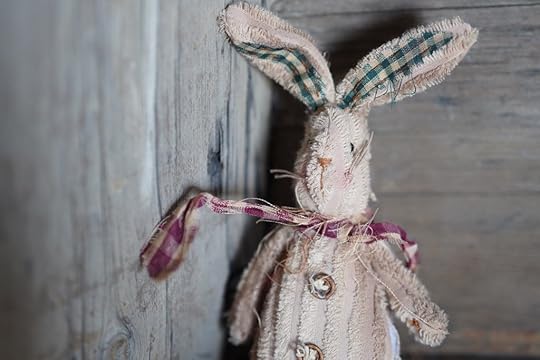

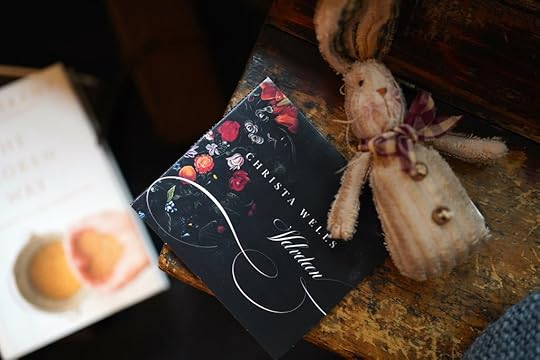
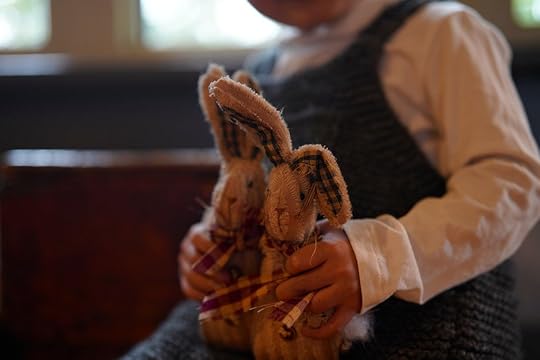
The truth is that loving somebody, anybody, makes you vulnerable, and with enough loving, you get worn out, at least on the outside. That’s when the eternal within has a chance to step forward.
The previously unseen now Real.
Ann’s words resonated profoundly and allowed me to hope that in spite of how bleak my life and future looked, something good might yet be born. The truth is that loving somebody, anybody, makes you vulnerable, and with enough loving, you get worn out, at least on the outside. That’s when the eternal within has a chance to step forward.
Truthfully, even in my sadness and fear, I sensed an awakening and an awareness of the real God being really with me.
I could no longer envision a future for myself or my family, but I could see the present moment keenly.
By the following spring, when the broken way before me had become inescapably clear, the truth of Velveteen also became clear, and a song began to swell.
“If my beauty starts to fade
Well, I’ve been held in a thousand ways.
If my heart looks broken in,
Then I’ve been brave enough to live.
If perfect turns to perfect mess,
And all Your love is all that’s left
Then I’m as real as real can be,
Call me Velveteen”
If perfect turns to perfect mess, a nd all Your love is all that’s left, t hen I’m as real as real can be — c all me Velveteen”
I would have been content to keep things as they were. A husband and wife under one roof. A down-the-road 50th wedding anniversary with our five kids and future grandkids and stories of our shared youth.
If I could have kept these things for myself, I would have.
I didn’t ask God to bring something hard so that I could grow. I am not that brave.
Yet here I am, not on the other side exactly — but slowly and surely heading that way.
Becoming more and more Alive, more and more the Beloved of God, I am…
…add the gorgeousness of Velveteen to your playlists?
Christa Wells is an American singer-songwriter based in Nashville, Tennessee, with over 15 years experience in the music industry.
As an indie artist, Christa has released five albums, developing a signature alternative-pop sound that is fresh, soulful, and enduring. Her latest project,Velveteen (April 2018) chronicles her own journey through suffering, singing relentless hope across the wide spaces of loss.
An award-winning songwriter, Christa has also collaborated with other Nashville artists to write hit songs such as “Held” (Natalie Grant), “Need You Now” + “God Help Me” (Plumb), and “Red Sea Road” (Ellie Holcomb.
This album, Velveteen, is on daily repeat here, the Farmer playing it in the truck — more soon on the song he has on repeat — and I just, honestly, am on done by the whole album, but One Day is a literal life line … Velveteen is one of our absolute favorite listens.
The post When We All Need A Song of Hope appeared first on Ann Voskamp.

November 5, 2018
When things are not as they should be yet still good
One glance at the headlines will tell you that the world is a dangerous, confusing place. Forget the headlines—just look at your social media feed. From global tragedies to interpersonal conflict, it can feel like the only choice you have left is to hunker down and do your best to survive. But what if God wants more for you in this life than survival? Better yet, what if He has a plan to restore the goodness of the world? What if you’re part of that plan? Hannah Anderson invites you to embrace discernment as part of God’s larger work of redemption. By learning to see the world as He sees it—in all its brokenness and beauty—you’ll learn how to navigate it with hope and confidence. And when you learn to pursue whatever is true and lovely and pure and just, you’ll find yourself changed. So come, join in this journey to wisdom. Come, find the freedom of discernment. Come, discover all that’s good. It’s a grace to welcome Hannah to the farm’s front porch today…
When we started from the city’s main station, exiting into a maze of unfamiliar streets and traffic patterns, the sky was looming, dark clouds gathering themselves above us.
An hour later when we were still walking, lost, cold, and hungry, the clouds had become a steady drizzle, drip-dropping on our heads.
Despite being on a trip of a lifetime, all I wanted was to be at home.
Our family lives in the blue mountains of rural Virginia. My husband grew up here and we’re raising our children here, putting down roots, drinking from the richness of community and family and home.
But we know that healthy plants must grow upward and outward.
We know that we’ll have to challenge the anxiety that can so easily develop in small places.
We know we’ll have to show them that larger cities and foreign places and new things are nothing to fear.
So we scrimp and save and forego the immediate for the timeless.
But when you’re tired and homesick and miserable, wandering the streets of Paris, you start to wonder whether the broader world is so important after all.
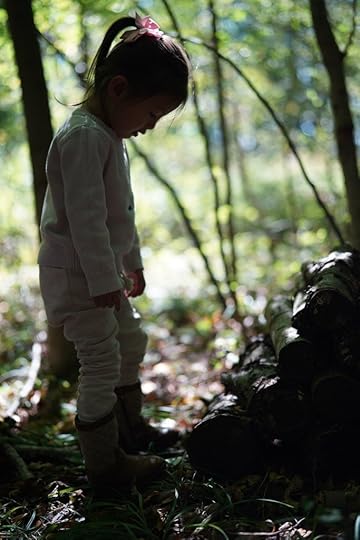



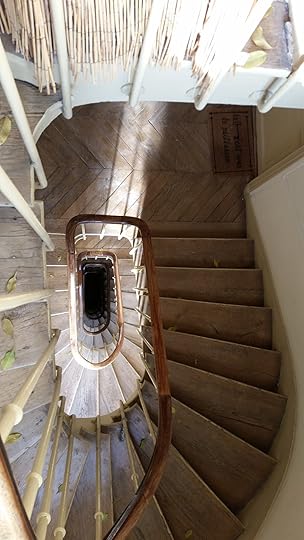 Hannah Anderson
Hannah Anderson



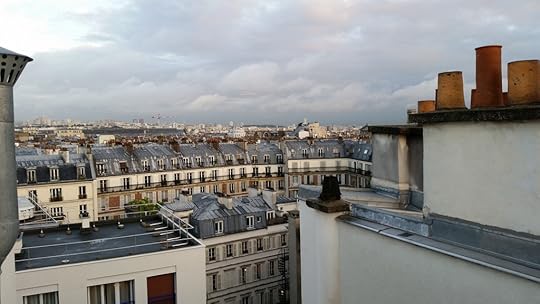 Hannah Anderson
Hannah Anderson



We finally found a spot for lunch, and after a few minutes with a map, made our way into the Louvre, bypassing the main entrance for a less frequented one in the Place du Carrousel.
Out of the elements, we relaxed, meandering through hall upon hall of beauty and goodness. Eventually, we found ourselves surrounded by ancient statuary, studies of the human form stretching as far as the eye could see.
My children’s discomfort from walking in the rain suddenly dwarfed by the awkwardness they felt at seeing so much nakedness depicted so freely and so accurately.
Leaving them to gape, I wandered ahead to a figure of a woman kneeling.
Her back was toward me, the smoothness of the marble perfectly accentuating the curve of her spine, the fluid lines and skilled craftsmanship lending her body the appearance of softness. Instinctively, I moved toward her, but as I did, I noticed a small mound protruding from her back. It looked like a growth of some kind, entirely at odds with the rest of the statue. But then I caught my breath. I knew what it was.
It was a small, chubby hand.
It was the hand that once reached up to touch my face with wonder, curiosity, and unashamed ownership.
It was the hand that grabbed at my necklaces and played with my hair when I forgot to tie it back. The hand that slowly but surely gained control over its movements, first learning to grasp and then to pinch. The hand that eventually figured out how to hold a pencil, catch a ball, and play the piano. It was the hand that still reaches for me in unfamiliar places—the hand that had all morning clutched for the reassurance of my body in the rain and confusion.
A plaque identified the statue as Crouching Aphrodite: the goddess of love at her bath, and the hand belonged to her son Eros who, as children do, had interrupted her.
Over the millennia, Eros had broken off at the wrist and been lost.
But attached to the main part of the statue, the small, chubby hand survived. The disfigurement was startling, and in a way, grotesque, testament to how far the statue had come from what it once was.
But in another way, it testified to a deeper reality.
For all that we can’t see clearly in this world, for all that is broken and gone missing, we do know that things are not as they should be. We know that we are not what we should be.
In Mere Christianity, C. S. Lewis reflects that he had once argued against the reality of God because the universe seemed cruel and unjust. “But how,” he wonders, “had I got this idea of just, unjust? A man does not call a line crooked unless he has some idea of a straight line. What was I comparing the universe with when I called it unjust?”
Standing in the Louvre on a rainy autumn afternoon, I could not see Crouching Aphroditeas she once was.
I could only see what was in front of me.
But for all that I could not see, I was learning to discern the goodness of the original.
Because how else do you know Eros exists except by a small, chubby hand that rests on his mother’s back?
How else do you know that things are not as they should be except by the pain and loss you experience when you encounter them?
For all that we can’t see clearly in this world, for all that is broken and gone missing, we do know that things are not as they should be. We know that we are not what we should be.
But in some strange way, this confirms goodness.
In some strange way, the struggle proves we were made for more.
Dutch theologian Henri Nouwen describes discernment as the ability to “‘see through’ the appearance of things to their deeper meaning and come to know the interworkings of God’s love and our unique place in the world.” It’s the ability to see the world as it should be and believe that God is powerful enough to restore it. To know that a good God sent His good Son to make us good once again.
******
We left the Louvre just as the skies broke into a downpour, a full-fledged lapluie torrentielle. Soaked and shivering, we flagged a taxi to take us to the attic apartment we’d rented in the Montmartre district.
In some strange way, the struggle proves we were made for more.
On the way, the children dozed, lulled to sleep by the stress of the day, the warmth of the cab, and the slow pace of rush hour traffic. My husband put his arm around me, and I leaned into him, resting my head on his shoulder.
By the time we arrived and ascended the dozens of steps, the rain had ended, leaving behind a clear sky and setting sun. From a skylight in a timbered attic, I watched the lights of the city emerge one by one. The echo of the television drifted up from the apartment below where the children cuddled together under a thick blanket, watching cartoons.
To my left, I could see Notre Dame and to my right, the Eiffel Tower. Behind me, high on Butte Montmartre, sat the majestic edifice of Sacre-Couer Basilica, her travertine towers and magnificent domes illuminated against the quickly darkening sky.
What if we could learn to “see through” to the deeper meaning of things and discover the beauty and love of God?
In the chaos of the world, it’s tempting to believe that brokenness is ultimate.
And if it is, then the best thing we can do is find a safe place, gather our loved ones, and hunker down.
But what if the brokenness testifies to goodness?
What if we could learn to “see through” to the deeper meaning of things and discover the beauty and love of God?
“I would have despaired,” David sings, “unless I had believed that I would see the goodness of the Lord in the land of the living” (nasb).
But we do believe.
And we will see His goodness.
Hannah Anderson lives in the haunting Blue Ridge Mountains of Virginia. She spends her days working beside her husband in rural ministry, caring for their three children, and scratching out odd moments to write. In those in-between moments, she contributes to a variety of Christian publications and is the author of several books including Humble Roots: How Humility Grounds and Nourishes Your Soul and the newly released All That’s Good: Recovering the Lost Art of Discernment.
In this latest book, All That’s Good: Recovering the Lost Art of Discernment, Hannah shows readers how discernment and goodness dovetail one another as she explains how experiences, people, and objects have been a gateway to her personal understanding of the goodness of God: A long-anticipated vacation, the warmth of a fireplace, a family heirloom.
[ Our humble thanks to Moody Publishers for their partnership in today’s devotion ]
The post When things are not as they should be yet still good appeared first on Ann Voskamp.

November 3, 2018
Only the Good Stuff: Multivitamins for Your Weekend [11.03.18]
Happy, happy, happy weekend!
Some real, down in the bones JOY to celebrate today! Links & stories this week 100% guaranteed to make you smile a mile wide & believe like crazy in a Good God redeeming everything — and that there’s love everywhere & for ((you))!
Serving up only the Good Stuff for you right here:
Jamie Justus Out @jamieout
Jamie Justus Out @jamieout
Jamie Justus Out @jamieout
good weekends start in the quiet places
now this school cafeteria manager is onto something right here…
this island of just 50 residents? where they are ruled by the weather as opposed to the clock…could you live here?!?
Journeying from Resistant to Acceptance
kinda couldn’t stop watching – can you even?!?
this one’s about so much more than a pizza delivery: just wow
found this one fascinating: What do grandmothers have to do with depression?
don’t forget to show love…
(c) John A. Chakeres / Instagram / Website
After 30 Years, Photographer Reveals Historic Archive of NASA Space Shuttle Images
Addiction nearly ruined this ballet dancer’s life, and now he’s helping others in recovery…
cheering wildly at this idea: grandparents give students mentors and themselves a purpose
“We’re wrapping our arms around them…it’s an outgrowth of how we used to treat teachers — like preachers.”
listen to your story
thank you for this, Jon Bloom: Distraction Can Cost You Everything
In this short documentary, members of the ESV Translation Oversight Committee and Crossway’s leadership team reflect on the history of the English Standard Version—with deep reverence, gratitude, and ongoing wonder at what God has done and continues to do through the ESV Bible.
Soli Deo Gloria!—To God alone be the glory!
How to avoid life’s biggest regrets, enjoy the best years: Advice from 90-year-olds
A minister who interviewed her oldest congregants was surprised by some of their answers
this one’s straight out of a storybook
are we coming to a city near you?!?
it would be a humble grace to meet you at one of these upcoming Christmas events!
exhale: glory, glory, glory
kinda undone: an extraordinary story of healing, hope, and love
“…ministry is where you have been called to serve and the assignment you’ve been given…” don’t miss this one?
Post of the Week from these parts here
beautiful: how to Love Thy Neighbor
grateful for the wisdom here: If you don’t pray you won’t live…
November is here!
Maybe this month, we all just need the gift of Joy… a bit of Hope? To stand together — FOR each other — knowing that an act of kindness, giving it forward, can be more powerful than any sword in starting movements that move us all toward Love.
Want the gift of light breaking into all the broken places, into all the places that feel kinda abandoned? These pages are for you. It’s possible — abundant joy is always possible, especially for you. Break free with the tender beauty of The Broken Way & Be The Gift …
And if you grab a copy of Be The Gift? We will immediately email you a link to a FREE gift of THE WHOLE 12 MONTH *Intentional* Acts of Givenness #BeTheGIFT Calendar to download and print from home or at your local print shop! Just let us know that you ordered Be The Gift over here.
You only get one life to love well.
Pick up Be The Gift & live the life you’ve longed to
in case there is any doubt, know that God. is. bigger.
on repeat this week: because broken people are exactly who You use…
…look, this is going to get real personal:
You are seen & known.
You aren’t just another face in the crowd, you aren’t just left fighting your battle, trying to slay your giants, forgotten & alone on the backside of nowhere. You aren’t just a number — your name, your name is engraved into the palm of His hands. He knows you — He knows that thing you can’t say out loud, He knows the soreness of the hidden wounds you’ve been carrying around on the inside, He knows the weight that you’ve been lifting & trying to pretend isn’t even there. He wrote a love letter to you about it all; He didn’t just write the Word–He wrote it for you … He wrote it to you — personally.
He wrote your name on His hand — personally.
He whispered, “I am Love — for you… & I love all the world — but don’t ever think that’s just some blanket statement– I come to you & wrap you personally in My love.”
This all gets real personal — because God is real & personal & He draws near to you today and says: “You, YOU are my Beloved — You are held & upheld, you are cupped & carried, you are wanted & wooed — you. are. not. alone.”
It’s always beautifully, intimately, real & personal:
Knowing God is love —
is not the same as knowing:
God Loves YOU.
[excerpted from our little Facebook family … come join us each day?]
That’s all for this weekend, friends.
Go slow. Be God-struck. Grant grace. Live Truth.
Give Thanks. Love well. Re – joy, re- joy, ‘re- joys’ again
Share Whatever Is Good.
The post Only the Good Stuff: Multivitamins for Your Weekend [11.03.18] appeared first on Ann Voskamp.

November 2, 2018
About Feeling like a Failure, About Regret and Sources and A Modern Day Psalm 51: Brutally Honest Psalms #7
For hands stained
with unqualified regret,
for all us Davids who murmur it:
I have failed and fallen,
in what I have wholeheartedly attempted to do,
and what I’ve wholly failed to do,
and in all I’ve done that’s fallen far short, and lays there painfully at fault—-
Is it possible to come wash
in the fountaining source
of fresh forgiveness?




For intentions and systems may fail,
but it’s truer that souls ultimately do.
And well-meaning explanations
can end up looking like mean excuses, as if both sincerity and apology were half-trying to excuse their sorry selves.
For there is shame that isn’t merely a lowering of the eyes,
but a pierced spearing
straight through,
that snatches away the breath
and sucker punches the soul
doubled over
with endless wretching
on self —-
but there is no vomiting free of
one’s self.
Is it possible to feel like
there’s a stinger that cannot be removed from the soul,
venom nauseating
the vein of
every moment?
Every pained thing
is done in plain view
of God.
And every wrong
that leaves us undone
is done ultimately
to Him.
Who catches God when He heaves and bleeds?
Who bruises the face of God and walks away?
Who can believe that David threw around his weight and position
until he crushed a woman
under the sin of his full-bodied lust,
and yet he winds his way back
on stinging skinned knees
to the feet of God,
to feel his failure finally
lifted off flattened lungs ——
to exhale the expansiveness of
grace that is weightless.
Who can believe that Nebuchadnezzar’s pride defied
God
till he was laid low on all fours,
foaming at his boasting-now-bovine mouth,
chewing on grass ripped from the earth with his bare teeth,
for more than 2,000 naked days
under the beating elements,
until he came to
his surrendered mind
and willing feet
and was returned to humble power from the humiliation of the pasture,
even more able than he had been before,
his needed cud-years ruminating him into restoration?
Who can believe Peter scorched his own soul with his repeated denial of Jesus,
the hostility around Caiphas’ fire absolutely terrifying,
only for the resurrected Jesus
to light a fire on the beach
and Peter to turn,
filled with the burning scent of shame,
and hear Christ’s humbling hospitality
to come eat,
to come and be entrusted still with work in the Kingdom
to humbly feed Christ’s sheep?
Who has the gall to believe
there is still a gusher of love that cleans life’s grime and any of conscience’s contamination,
or hushes the hauntings that howl in the hallways of the mind?
Not me.
Not. Me.









But maybe — nothing remakes everything like grace.
Maybe — wreckage always births resurrection.
Maybe: Trust that there is no such thing as destruction, only reconstruction.
Trust that nothing ruins,
only ruins you for anything less than God.
Trust that what is coming at you,
is God coming for you.
Trust that what looks like a wave to carry you away,
Is the wave that will carry you to shore.
Trust and obey the One who walks on waves
will make a highway
Out of everything that rises in your way
Trust that breathing in His pure, unadulterated passion for the broken-hearted—
is what creates in the broken a pure heart.
And what makes even us whiter than snow —- is melting into the depths of His unfathomable love.
Maybe what fixes all that’s broken is to cast everything aside but His presence.
Maybe life is a long repentance in His direction.
And maybe it is actually possible —-
that in
Surrender to the Master,
the thrumming drum of your heart
is Remastered
Restored
Reworked, Reformed, Remade,
And your joy in His always enoughness
Returns.
And one shattered heart erupts into a fountain of need,
and one broken heart becomes a geyser for glory,
And one split heart is a sacrifice that streams with amens
to the One who is the Source of all things.
All Photos by heart-sister, Joy Prouty who never, ever, ever stops looking for His Light.
The post About Feeling like a Failure, About Regret and Sources and A Modern Day Psalm 51: Brutally Honest Psalms #7 appeared first on Ann Voskamp.

November 1, 2018
The Invitation to Notice: How my son with Down syndrome is teaching me the richness of a small, unhurried life
Four years ago I wrote the foreword to Micha Boyett’s first book Found: A Story of Questions, Grace and Everyday Prayer, her story of rediscovering prayer in the chaos of motherhood. “The moments all matter,” I wrote of her book. “The daily awareness of the small adds up to the whole of your life, stirring you to wake and walk.” When she wrote Found she was learning how to live prayerfully, how to notice the smallness of God’s presence in her ordinary life. And since that book? Since then she has entered into a story that has called her deeper and deeper into that miraculous ordinary. Her son Ace was born with Down syndrome in 2015, leading her to new places of quiet and joy and transformation. I read her words and my breathing slows. She gives perspective. And hope. It’s a grace to welcome Micha to the farm’s front porch today…
Four out of seven nights a week Ace chooses Maybe God is Like That Too for his bedtime story.
He digs through the haphazard pile of books in his basket of favorites, carries it over to me, and we both plop ourselves belly first onto the carpet. It’s our preferred way of nighttime reading, a habit developed over hundreds of evenings doing this very thing.
God will use your son to refashion your heart, slow you down, reveal what is most real in this life.
The paper pages have been torn and taped together with shiny packing tape, which means our fingers slide across the page when we count the “ten yellow taxis” and point to the tiny dog dressed in a “fluffy purple sweater.”
It’s a simple book, a story of a little boy and his grandma who look for God in an ordinary day, and find God’s presence in the places where they experience simple joy, peace, and goodness.
The boy notices the kindness of strangers and the delight of swinging high into the air at recess and wonders, “maybe God is like that too.” When we get to the “too,” I wait and turn my head with a smile to my three and a half year old. He concentrates and forces out a “tah!” I smile again and say “tah-ooo, tah-ooo.” He tries again, says “tah” and this time makes the “oh” shape with his lips, but no sound comes out. He claps for himself.
This weekend I’ll join two other moms of children with Down syndrome at a conference to share about what we know now, years into our journeys with Down syndrome, what we would love to go back and tell our fearful, younger selves.
I’d say this to myself: God will use your son to refashion your heart, slow you down, reveal what is most real in this life.
When God reveals the realest truth we’re asked to change the way we live in this world.
When Ace was given to me, he shook my vision of everything.
Suddenly what I’d always accepted about success, intelligence or ability became categories that deprived my child of value.
 Maggie Beadle Photography, 2017 / @maggiebeadlephoto
Maggie Beadle Photography, 2017 / @maggiebeadlephoto

 Maggie Beadle Photography, 2017 / @maggiebeadlephoto
Maggie Beadle Photography, 2017 / @maggiebeadlephoto Maggie Beadle Photography, 2017 / @maggiebeadlephoto
Maggie Beadle Photography, 2017 / @maggiebeadlephoto

 Maggie Beadle Photography, 2017 / @maggiebeadlephoto
Maggie Beadle Photography, 2017 / @maggiebeadlephoto

 Maggie Beadle Photography, 2017 / @maggiebeadlephoto
Maggie Beadle Photography, 2017 / @maggiebeadlephoto

 Maggie Beadle Photography, 2017 / @maggiebeadlephoto
Maggie Beadle Photography, 2017 / @maggiebeadlephoto

 Maggie Beadle Photography, 2017 / @maggiebeadlephoto
Maggie Beadle Photography, 2017 / @maggiebeadlephotoI spent my early years of motherhood wanting to believe that I would accept my kids no matter their ability or impressiveness. But I breathed out relief when my older sons learned to speak early, when they grew fast, and when they were labeled bright or learned to read faster than others.
It was having a child who would never fit into labels of “bright” or would not win the race of early readers, to consider that my priorities might have been misplaced all along.
I had always used words that championed every human as valuable, but in truth I judged my parenting based on whether my children were successful, polite, and kind. I judged my own value based on those standards as well.
“My yoke is easy and my burden is light,” Jesus is always saying. “Take my yoke upon you.”
What I didn’t expect was that my third baby, the child who came into this world weaker, his chromosomal differences written into every cell of his body, would be my teacher in the yoke of Jesus.
I used to think that Jesus’ easy burden was something to learn.
Learn to release the anxieties of my life.
Learn to live in a lighter way.
Now I recognize that the ease of Jesus is not something I have to find my way toward. It’s here with me already. It’s beside me if I choose to turn and see it.
We live in the city where school drop-offs involve complicated searches for parking spaces along the streets close by. Ace and I find a spot, walk the blocks, wait for the crosswalk lights. He holds my hand and then lets go when we get to the sidewalk. “Tah, tah, tah!” he counts. “Doh!” And then he runs ten paces and stops, grins mischievously at me, and counts to three again. Easy yoke.
Now I recognize that the ease of Jesus is not something I have to find my way toward. It’s here with me already. It’s beside me if I choose to turn and see it.
If Ace has a superpower it’s his natural inclination to take his time. Despite his living in a culture that needs us all to hurry, Ace has an inner stillness, a willingness to move through the world slow enough to notice the beauty beside him.
That slow movement has provided him with an invisible antenna to see the emotional pain of others.
He seems to turn his attention to feelings of the people around him, not because he’s a prodigy of empathy, but because he lets himself pay attention to the world around him.
Ace is teaching me that moving slowly through the world is the sweetest way to notice, to practice gratitude, to follow Jesus.
We’ve been reading Maybe God is Like That Too for more than a year, saying the “tah” sound of “too” for more than a year. And my son is learning, he’s learning. At a pace I never expected. A pace I’ve learned to release. A pace he celebrates and has taught me to celebrate too.
Yesterday I entered Ace’s room during the chaos of helping his brothers finish their after-school homework, and gathering ingredients for dinner. And I found my youngest sitting on the floor listening to music, his doll wiggling back and forth in his hands, dancing to the song he was humming.
How many times did my older boys play pretend or hum? Did I ever really pay attention? This child has never hummed. He has loved music all of his life, but is only just learning the possibilities of his own beautiful voice. And he has never played pretend without my showing him what to do. But, there, right in the middle of the chaos of an ordinary Wednesday, my son was humming and moving his doll to the music.
The miracle of Ace’s life is the miracle available to all of us. It’s the invitation to notice.
It’s the reality that the most wonderful things are not the successes of the powerful, but the presence of God in the smallest everyday gifts.
This world says the blessed ones are the multitaskers, the big deal makers, the early learners, the loudest talkers.
The world says the powerful will always win, the rich will inherit the earth, the intellectually impressive will earn respect.
Ace is teaching me the secret of God’s kingdom. It does not look like the world.
It looks like this:
The ones who hug freely will bring peace.
The delighted will notice the miracles.
Those who take their time will find enough.
Those who dance freely will hear music in everything.
The pure in heart will see God.
Ace is teaching me the secret of God’s kingdom. It does not look like the world.
It’s not anything new. But a reminder that Ace offers me everyday.
Sometimes the task of the Jesus-follower is a lot more simple than we realize.
Sometimes we are called to slow our pace down, take delight in the small moments, look in the eyes of the people who come near —
and recognize that God is inviting us to a life of lightness and ease:
the success of ordinary joy.
Micha Boyett is the author of Found: A Story Questions, Grace, and Everyday Prayer and one of the hosts of The Lucky Few Podcast, which celebrates the lives of people with Down syndrome. She shares her life with Ace at @acefaceismyfriend on Instagram.
In addition to her advocacy for Down syndrome, she writes about ancient spiritual practices and how they inform the contemporary life of faith. She has written for The Washington Post, Christianity Today, Patheos, and various other publications.
I read Micha’s words in Found: A Story Questions, Grace, and Everyday Prayer and my breathing slows. She gives perspective. And hope. And a refreshing lightness to not take what doesn’t matter too seriously. The daily awareness of the small add up to the whole of your life, and her words are one of the most beautiful, memorable reads, like a dawn, stirring you to wake and walk.
The post The Invitation to Notice: How my son with Down syndrome is teaching me the richness of a small, unhurried life appeared first on Ann Voskamp.

October 31, 2018
When you lose your foothold and it all seems so overwhelming
How many times have we tried to fight the battle ourselves? We think that if we just pray harder or work longer or come up with a better plan, a solution will present itself just around the corner. We will overcome, we tell ourselves. We will be conquerors. But eventually a battle comes along that we do not have the strength to fight. This is the struggle KariAnne Wood shares through her transparent and honest discussion about her daughter’s illness and how she discovered she was not alone in her battle. Because in the valley, in the darkness, in the overwhelming moments…God is there. It’s a grace to welcome KariAnne to the farm’s front porch today…
Have you ever climbed a mountain?
Literally or figuratively?
Did you notice that when you stand at the bottom of the mountain and look up . . .
. . . it all seems so overwhelming?
I know what it’s like to stand at the base of a problem that looks insurmountable
There are steep cliffs and crevices and many vertical miles to go. You try to climb. You put one foot in front of the other, and then, somewhere along the way, you lose your foothold.
You look up at the mountain, brace your shoulders, and shiver slightly at the road ahead.
I can’t climb this, you tell yourself. I’ll never make it. I don’t have the strength or the energy or the willpower for the journey. That mountain is unclimbable.
But the truth?
To climb a mountain, sometimes all you need to do is stand.
I’ve never climbed a literal mountain before, but I do know what it’s like to stand at the base of a problem that looks insurmountable.





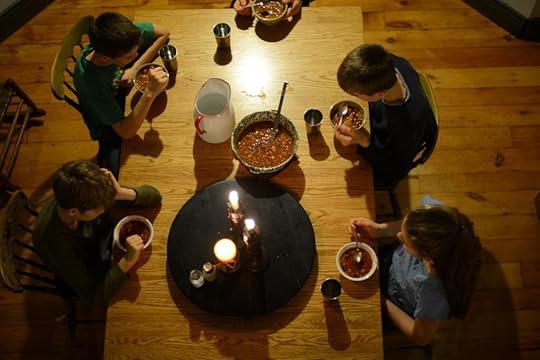

Last November, my fourteen-year-old daughter Whitney had eye surgery for a detached retina.
When she was born, she and her twin sister were three months premature, with all the complications that come along with an early birth. Unbeknownst to us, her blood vessels never developed properly behind her eye. The eye problems didn’t present themselves when she was younger. She had eye check-ups every year, with great reports and twenty-twenty vision.
I tried to pray, but I couldn’t find the words.
Until.
Until one day she noticed that her vision in one eye was blurry and that there were dark spots in the corners of her peripheral vision. We rushed her to the doctor’s office, where tests revealed that she had a detached retina. The next day she had emergency eye surgery to repair it.
She was so brave. She didn’t flinch. She grabbed my hand and held on tightly and stared up at me with big blue eyes full of courage and determination. They put a cap on her blonde curls and a patch over her eye, and then they tucked her into the hospital bed and rolled her into surgery.
I stood there watching the doors close behind the cart and dissolving into tears . . .
. . . grasping for understanding.
Why? I sobbed. Why? She is so small, and I’m so scared. I tried to pray, but I couldn’t find the words.
I was under attack from the enemy. I tried to lean on the Lord for patience and understanding, but my sorrow and fear got in the way. I tried to search my heart for a Scripture passage so I could find comfort in the promises of God.
But the mountain was too high, and somewhere along the journey, I lost my foothold.
My daughter healed quickly after the surgery. The doctors told us everything looked optimistic. We were hopeful. Her sight returned, and the blurriness faded, and her smile was back bigger than ever.
And then?
Six weeks after the first surgery, we went in for a follow-up visit and discovered she would need another operation. And then another surgery four weeks later. It was heartbreaking. Her smile dimmed a little, and her blue eyes clouded over, and her heart was sad. I watched as my tiny, four-foot-nine-inch fighter struggled. She couldn’t go to school. She couldn’t play basketball or jump or leap or cartwheel or dance . . .
. . . or climb.
It’s one thing if you struggle, but to watch your child suffer is almost unbearable.
Ever so gradually, in the middle of the valley, as I watched my daughter struggle, I realized I wasn’t fighting alone.
Scripture tells us to put on the full armor of God. We are to buckle the belt of truth around our waists and take up the shield of faith and the helmet of salvation and the sword of the spirit.
I wish I could tell you it suddenly became easy, but the truth is, it was hard.
It’s one thing if you struggle, but to watch your child suffer is almost unbearable.
It was painful and sorrowful and gut wrenching, and there were days I felt overcome by the sadness of it all. But over time, painstakingly, with God’s help . . .
. . . I took on that mountain with every tiny step.
Every foothold. Every minute. Every hour. Every day.
And then I watched as the impossible slowly became possible.
It’s easy to become overwhelmed and to take our focus off of Him. In the darkest of hours, He teaches us to rest on His promises.
I got my foothold back. My steps became stronger. The hopeless became hopeful.
My daughter’s sight returned in her eye, albeit blurry and out of focus.
God carried us to victory.
Mountains appear around every corner.
Sometimes they are higher than we ever could have imagined.
It’s easy to become overwhelmed and to take our focus off of Him. In the darkest of hours, He teaches us to rest on His promises.
And when we can’t fight—when we’re weary and we’ve lost our foothold on that mountain path—we are simply to stand.
Stand against the schemes of the enemy.
Stand firm on the Word of God.
Stand on faith, with our feet ready.
And let God take our steps for us.

With joy and an exuberant heart for the un-finer things in life, KariAnne Wood writes her books and the lifestyle blog Thistlewood Farms from her project-filled historic home in Dallas, Texas. She recently followed God’s call and jumped back “home” with her family from the middle of the country to the busy Dallas Metroplex, where she lives with her husband and four children.
Her second book, You’ve Got This (Because God’s Got You), features fifty-two devotionals that are full of joy and encouragement, with Scriptural reflections, personal stories, and prayers to remind us that God is always by our side. He loves us when we feel unlovable. He lifts us up and gives us a peace that passes all understanding. And in the midnight of every dark moment, He is there.
[ Our humble thanks to Tyndale House for their partnership in today’s devotion ]
The post When you lose your foothold and it all seems so overwhelming appeared first on Ann Voskamp.

Ann Voskamp's Blog
- Ann Voskamp's profile
- 1369 followers






